Table of Contents
Organic Marketing: A Complete Guide (2024)
What Is Organic Marketing?
Organic marketing is a strategy that focuses on attracting and engaging customers naturally, without paid advertising.
It involves leveraging content creation, SEO marketing, and social media to drive traffic and conversions.
Organic marketing aims to build long-term customer relationships through valuable and relevant content.
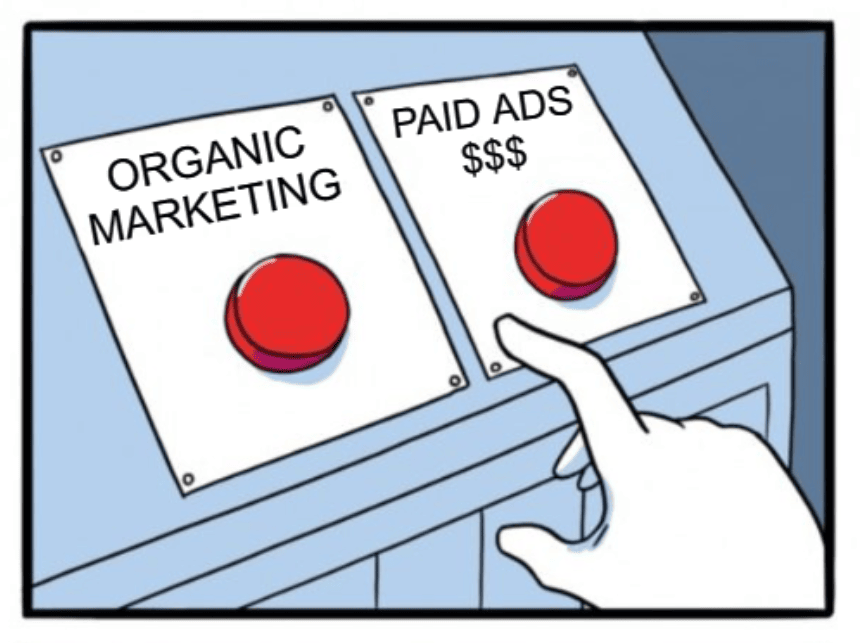
Organic vs Paid Marketing
There are two main approaches: organic and paid. While both have their merits, they differ in tactics and outcomes.
Organic marketing relies on unpaid tactics like SEO marketing and content creation, while paid marketing involves investing in advertising campaigns.
The critical distinction between the two lies in the way they generate visibility. Organic marketing focuses on building trust and credibility by providing valuable information that resonates with the target audience.
On the other hand, paid marketing offers immediate visibility through advertisements that are displayed to a wider audience.
Another crucial difference is the timeline for results. With organic marketing, businesses can expect sustainable traffic growth over time as their content gains traction organically.
However, this approach requires patience and consistency before seeing significant results.
In contrast, paid marketing delivers instant results since ads can be strategically placed to reach a larger audience quickly.
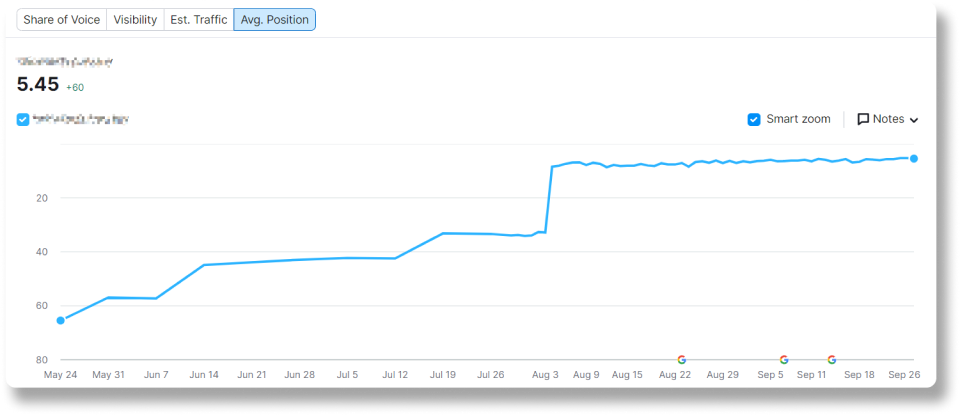
Here’s a sample of how our SEO link-building campaign organically improves the targeted keywords’ overall ranking.
The timeline may vary from months to years, but the result is sustainable to make your website stay on top of the search result page!
Core Principles of Organic Marketing
To succeed in organic marketing, several core principles should be followed:
- Authenticity: Building trust with your audience is essential for organic marketing success. Being authentic and transparent in your communication establishes credibility and fosters meaningful connections with potential customers.
- Relevance: Creating content relevant to your target audience’s interests and needs is vital for driving engagement. You can attract and retain their attention by understanding their pain points and providing solutions or valuable insights through your content.
- Value: Providing value should be at the heart of your organic marketing efforts. Whether it’s educational blog posts or informative videos, offering valuable content establishes you as an authority in your industry and keeps your audience coming back for more.
Consistency and patience are crucial to achieving long-term results in organic marketing. Building an organic marketing channel takes time, but the rewards can be significant.
Tactics for Successful Organic Marketing
As mentioned earlier, SEO is one of the best organic marketing methods. Statistics show that there are more than 8.5 billion searches on Google per day.
And with a click-through rate of 39.8% for the #1 organic position, if your site ranks for a keyword with a 22,000 monthly search volume, your site will get an estimated 8,756 searches per month! 🤩
So now, you know optimising your website for search engines to succeed in organic marketing is crucial. But how?
We have written a comprehensive guide on effective SEO strategies to drive organic traffic to your site and increase conversions. Feel free to check it out.
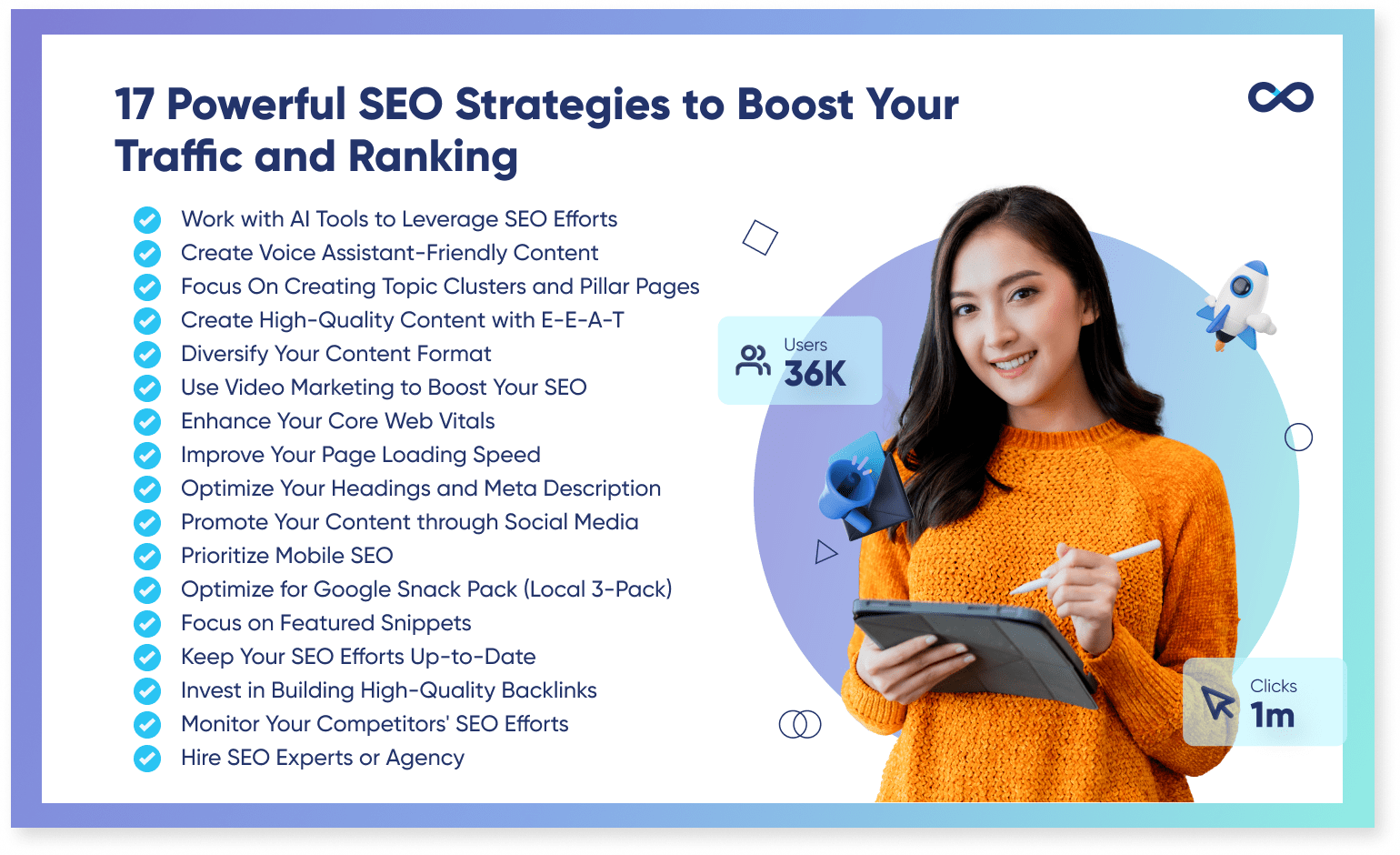
Creating Your Content
One essential aspect of content marketing is understanding the needs and interests of your target audience.
You need to identify the topics that resonate with them and create content that addresses their pain points or solutions to their problems.
This ensures that your content is valuable and relevant to your audience, increasing the chances of engagement and conversions.
Another important factor in content marketing is consistency.
Regularly publishing new content helps keep your audience engaged and returning for more.
It also signals to search engines that your website is active, which can positively impact your organic rankings.
Quality Content Creation
Focusing on quality content creation is crucial to achieving success in organic marketing. High-quality content attracts organic traffic, increases brand visibility, and encourages conversions.
But what is a quality content? How does it differ from the top-ranking content?
We have made an infographic to summarise the main ingredients you can include in your content to stand out from the competition:
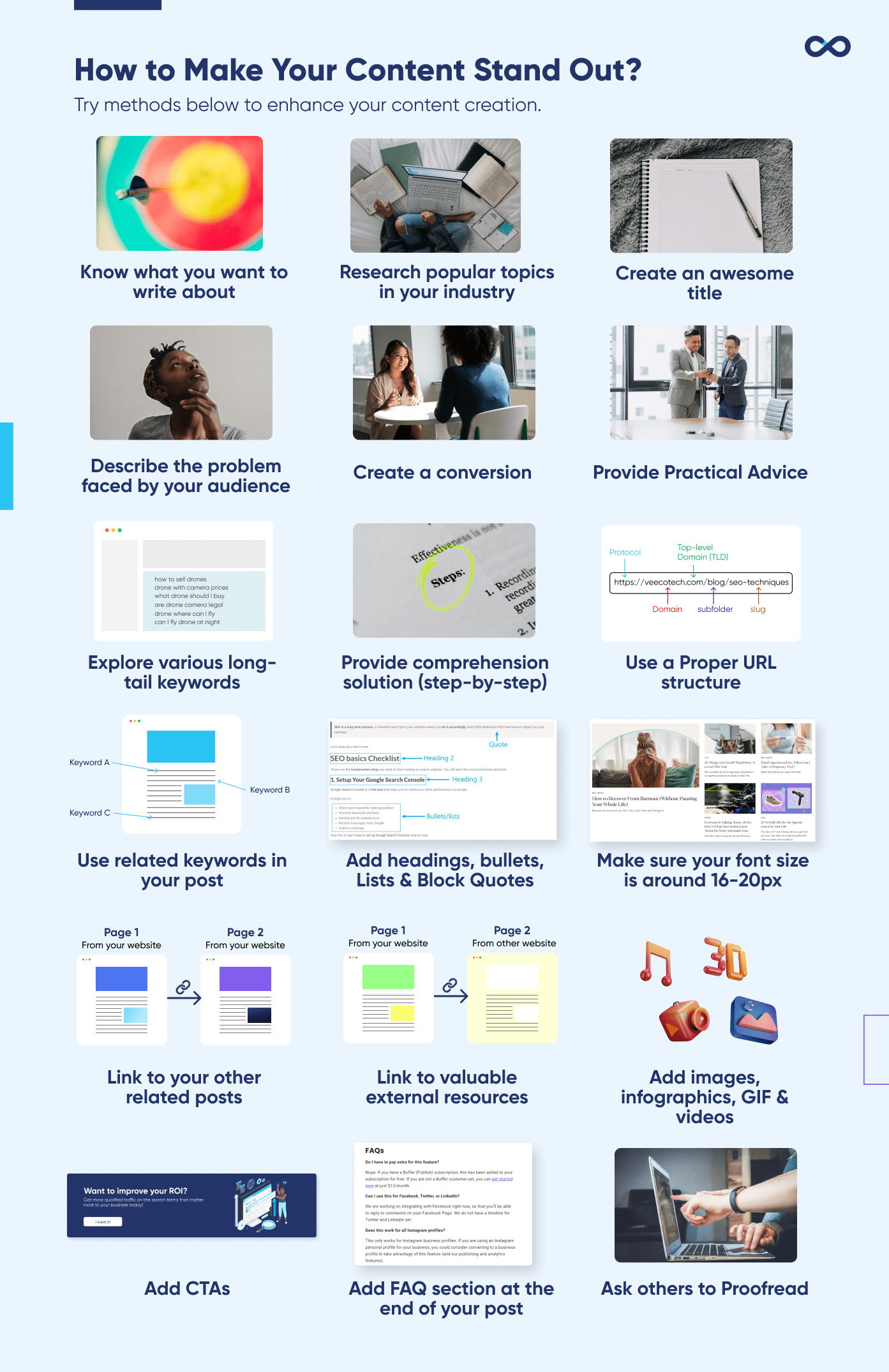
When creating content, it’s important to prioritise both information and engagement.
Your content should provide valuable information that educates or entertains your audience while engaging enough to capture their attention.
Use storytelling techniques, incorporate visuals such as images or videos, and ensure your writing style matches the tone of your brand.
Creating shareable content
When people find value in your content, they are more likely to share it with others through social media platforms or by linking back to it from their websites or blogs.
This increases brand exposure and generates valuable backlinks that can improve search rankings.
One of the great examples is Wyzowl, in which the team frequently updates the global video marketing statistics and makes them easy to share through PDF and charts.
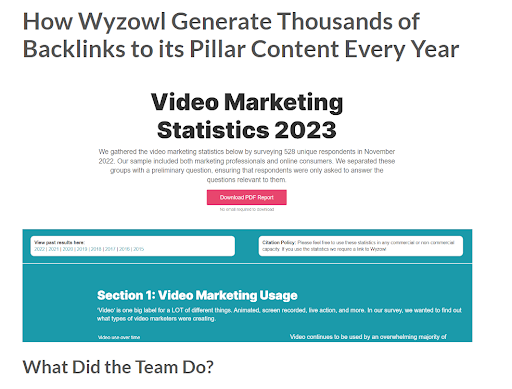
We’ve included some more ideas for linkable assets in this article. Take a look!
At VeecoTech, we create high-converting content that captures your audience’s attention and drives conversions.
Through SEO-centric content creation, we have successfully helped one of our clients in the travel industry to increase organic traffic by 51.96% within a month! 😄
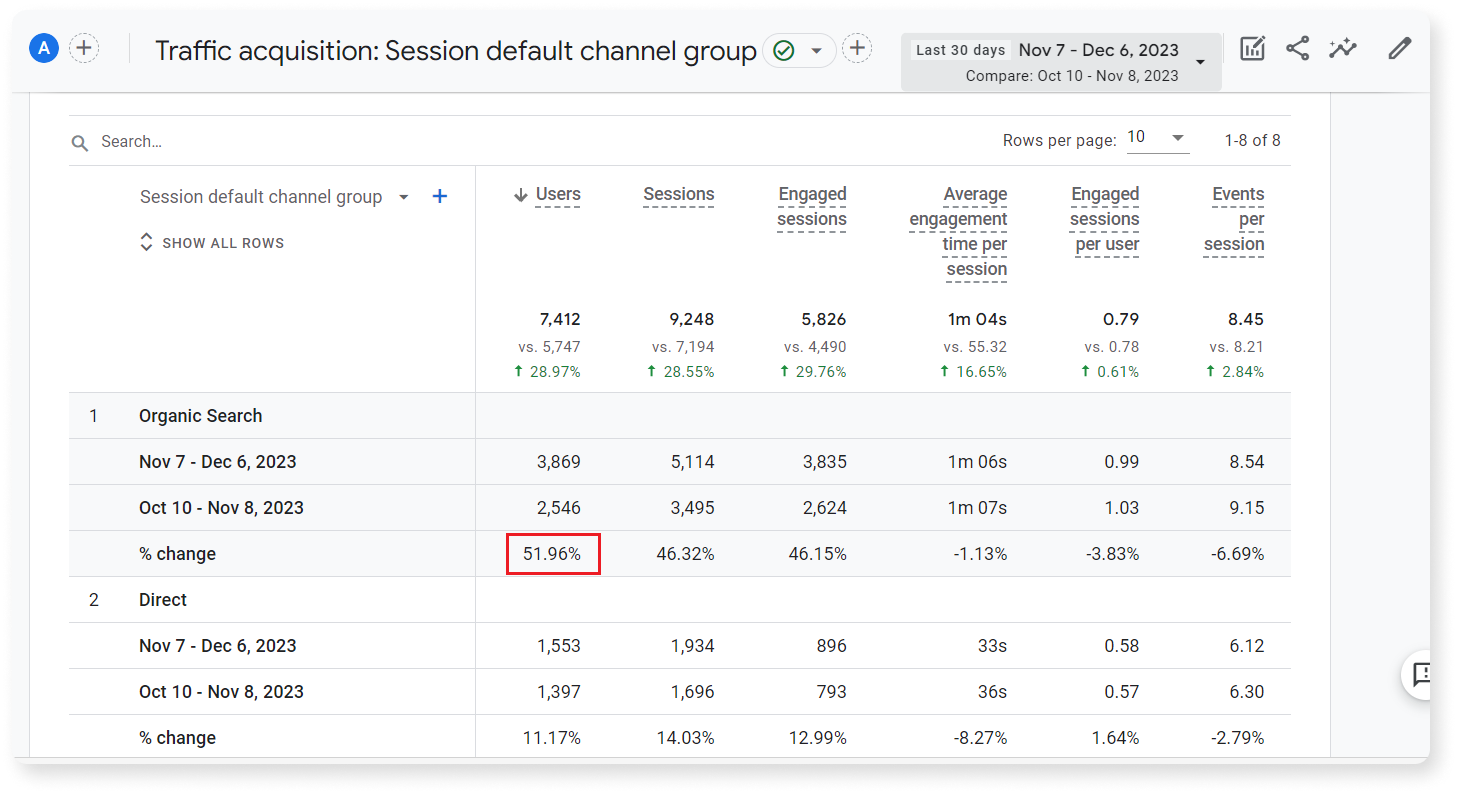
The good news is we have also helped them grow conversion by 15% through content creation!
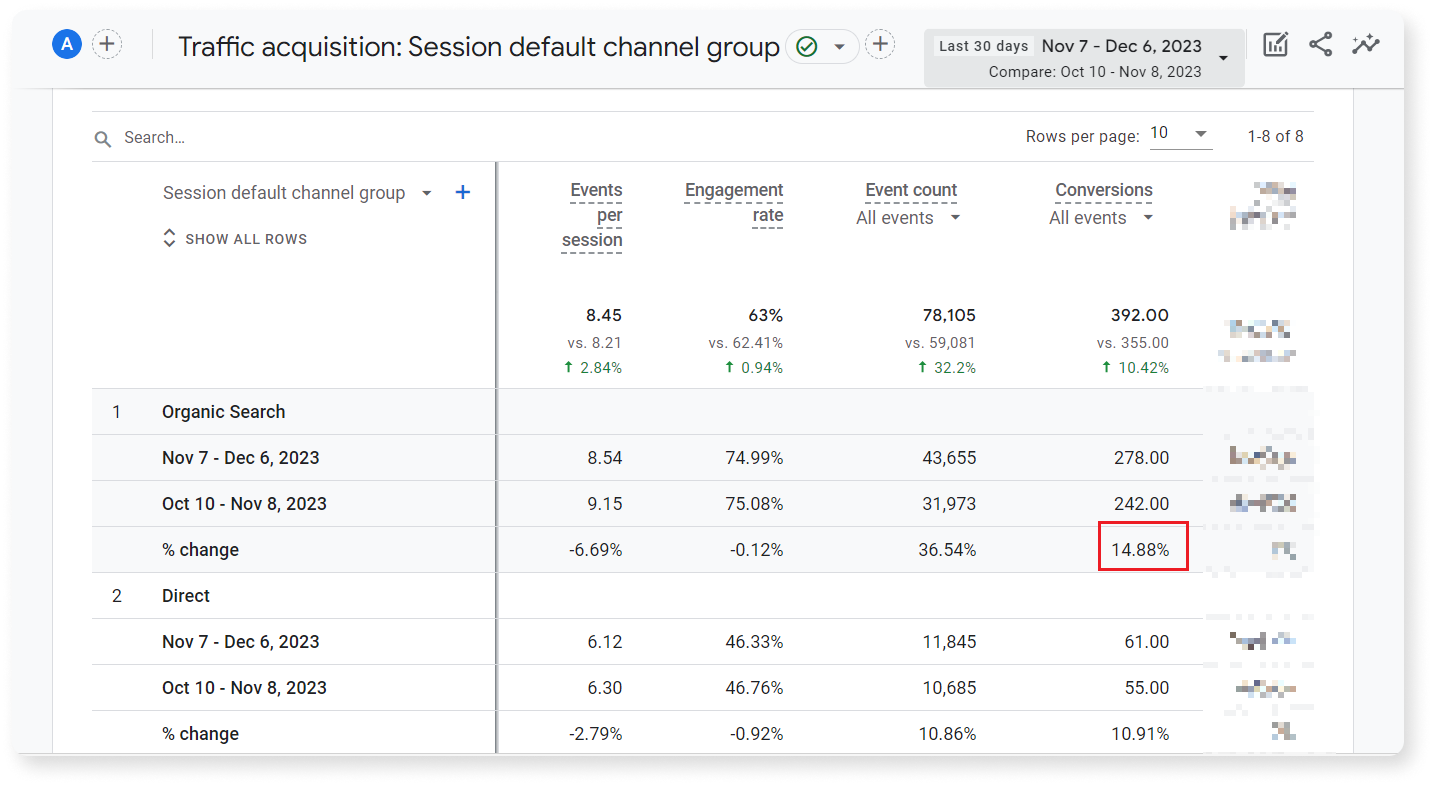
SEO and content marketing go beyond merely discovering keywords and fitting them into blog posts. It’s a multifaceted process, incorporating numerous tactics.
Choosing an SEO partner means finding someone who understands your company’s objectives and can create a tailored strategy for your growth — and that’s where VeecoTech comes in.
Are you considering SEO investment? Reach out to us! We might just be the ideal ally to boost your search visibility and propel your business forward 😉
Building Online Communities
Building online communities is another effective strategy for organic marketing. By creating platforms for like-minded individuals to connect, businesses can foster engagement and loyalty among customers.
Online communities provide a space where customers can interact with each other and your brand.

This fosters a sense of belonging and strengthens the brand community. Encourage discussions, promptly address customer queries or concerns, and provide valuable insights or resources within the community to keep members engaged.
Furthermore, online communities can drive organic growth through word-of-mouth marketing. When satisfied customers share their positive experiences with others, it creates social proof and builds trust in your brand.
For instance, you can join Facebook or Slack groups related to your niches and actively share your opinions and content to build networks and relationships.
This can increase organic traffic as more people become interested in your business.
Use Social Media to Engage with Your Audience
Another successful organic marketing method is engaging with your audience on social media platforms.
According to a recent study by Sprout Social, 64% of consumers want brands to connect with them on social media.
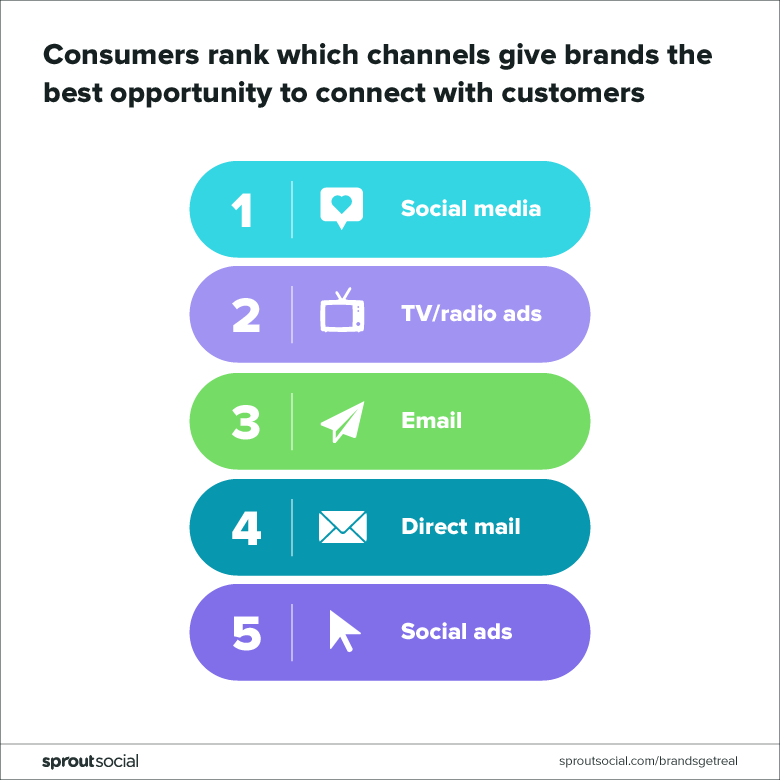
Social media platforms allow you to reach a wider audience and foster meaningful connections with potential customers.
You can build strong relationships with your followers by actively participating in conversations, responding to comments, and sharing valuable content.
This engagement increases brand exposure and drives organic traffic to your website.
Enhancing Organic Growth with Email Marketing
Email marketing is another powerful tactic for organic marketing success.
You can nurture leads and maintain regular communication with your audience by building an email list of interested individuals.
Personalised email outreach allows you to provide targeted content and offers that resonate with recipients.
According to a study by Campaign Monitor, email marketing has an average ROI of $42 for every dollar spent.
This demonstrates the effectiveness of email outreach in driving traffic, increasing conversions and fostering customer loyalty.
Here are some practical tips for driving organic marketing growth through email marketing:
Crafting Personalised Campaigns
Personalised campaigns are a powerful tool for businesses if you’re looking to enhance your organic growth through email marketing.
This approach goes beyond generic mass emails and instead focuses on delivering content that resonates with each recipient.
According to email marketing studies, personalisation can significantly improve key metrics.
Research conducted by Zipdo found that emails with personalised subject lines have a 26% higher open rate than those with generic subject lines.
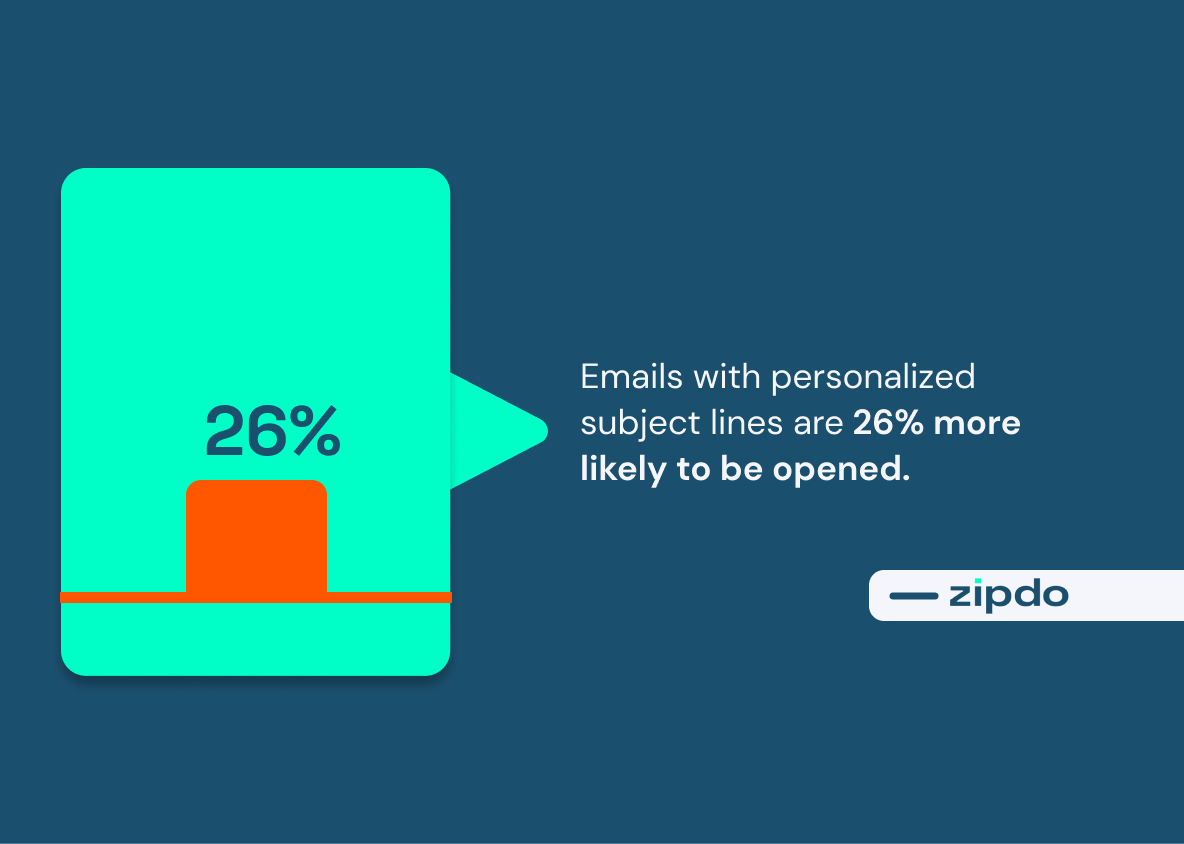
Emails with personalised greetings had a 14% higher click-through rate than those without personalisation.
Segmenting Audiences for Relevance
Segmenting audiences based on demographics, interests, or behaviour is an essential strategy in email marketing.
Segmentation also plays a vital role in driving engagement and conversions.
A study by Mailchimp revealed that segmented campaigns had significantly higher open rates (14%) than non-segmented campaigns.
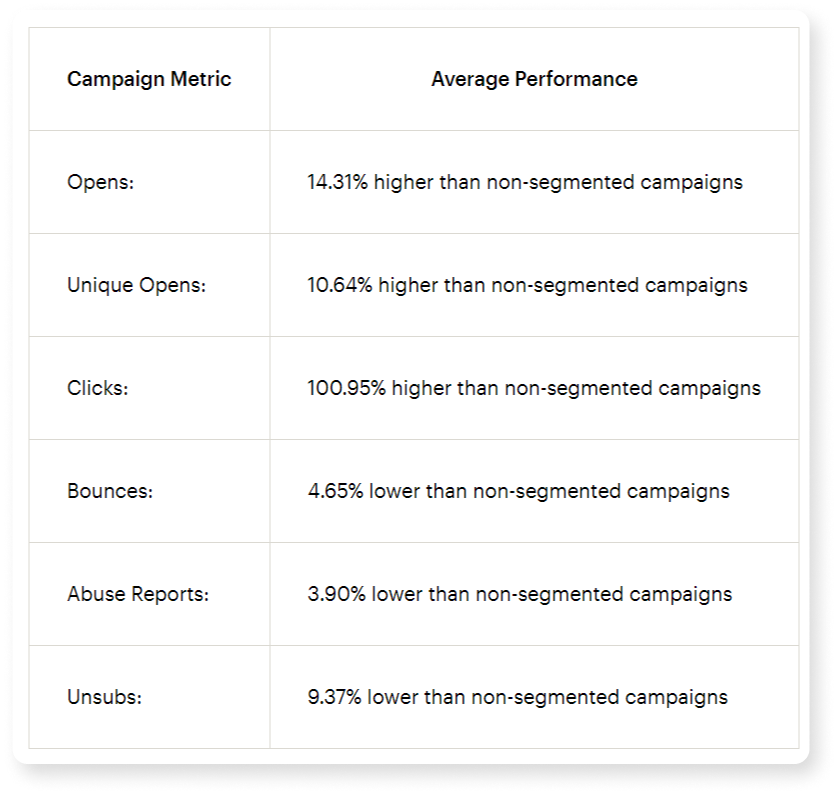
Moreover, segmented campaigns also had higher click-through rates (101%) and lower unsubscribe rates (9.37%).
For example, a clothing retailer might create different email campaigns targeting men and women or offering personalised recommendations based on past purchases.
This level of customisation ensures that subscribers receive content that is most likely to resonate with them, increasing engagement and driving organic traffic.
Measuring Email Engagement
Measuring email engagement is crucial for evaluating the success of email marketing campaigns.
Metrics such as open, click-through, and conversion rates provide valuable insights into subscriber behaviour.
For instance, a high open rate indicates that recipients find the subject line compelling enough to open the email, while a high click-through rate suggests strong interest in the content within the email.
These metrics help businesses understand what types of content resonate with their audience and allow them to optimise their email outreach strategies accordingly.
You can use email marketing platforms with detailed analytics and reporting features to measure email engagement effectively. These tools allow you to track key metrics and gain insights into subscriber behaviour.
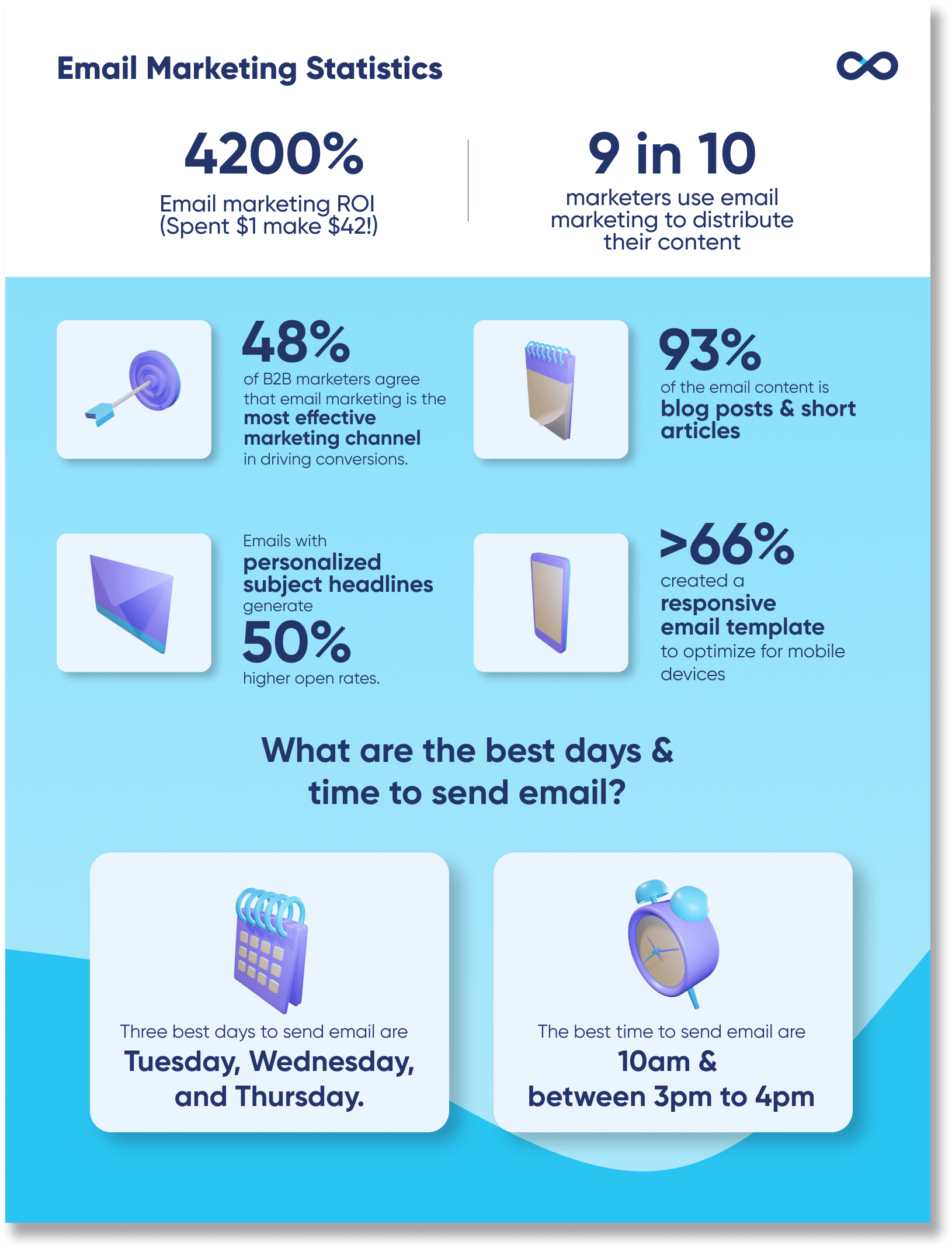
Regularly monitoring these metrics allows you to identify trends, understand what resonates with your audience, and make data-driven decisions to improve your email marketing efforts.
Utilising Digital PR
Digital PR is an effective strategy for building brand visibility and generating organic traffic.
It involves leveraging online platforms to gain media coverage and reach a wider audience.
Press releases are a common digital PR tactic that allows businesses to share newsworthy information about their products, services, or achievements.
Collaborating with influencers can also amplify your digital PR efforts. Influencers have established audiences who trust their recommendations.
Guest blogging is another powerful digital PR technique that enables you to contribute content to authoritative websites in your industry.
You can find bloggers or related niche sites and pitch them to include a link in their article or allow you to post your article on their sites.
Sharing your expertise through guest posts increases your brand visibility and generates valuable backlinks that improve search rankings.
These are the tactics we apply to effectively drive quality leads to our clients’ businesses!
Here’s a case study from our client.
After successfully obtaining a link from a high-quality, niche-relevant blog (with a DA of 38 and 3.6K organic traffic), our targeted keyword soared from #46 to #13 within a week 😱. It improved steadily to the #6 spot.
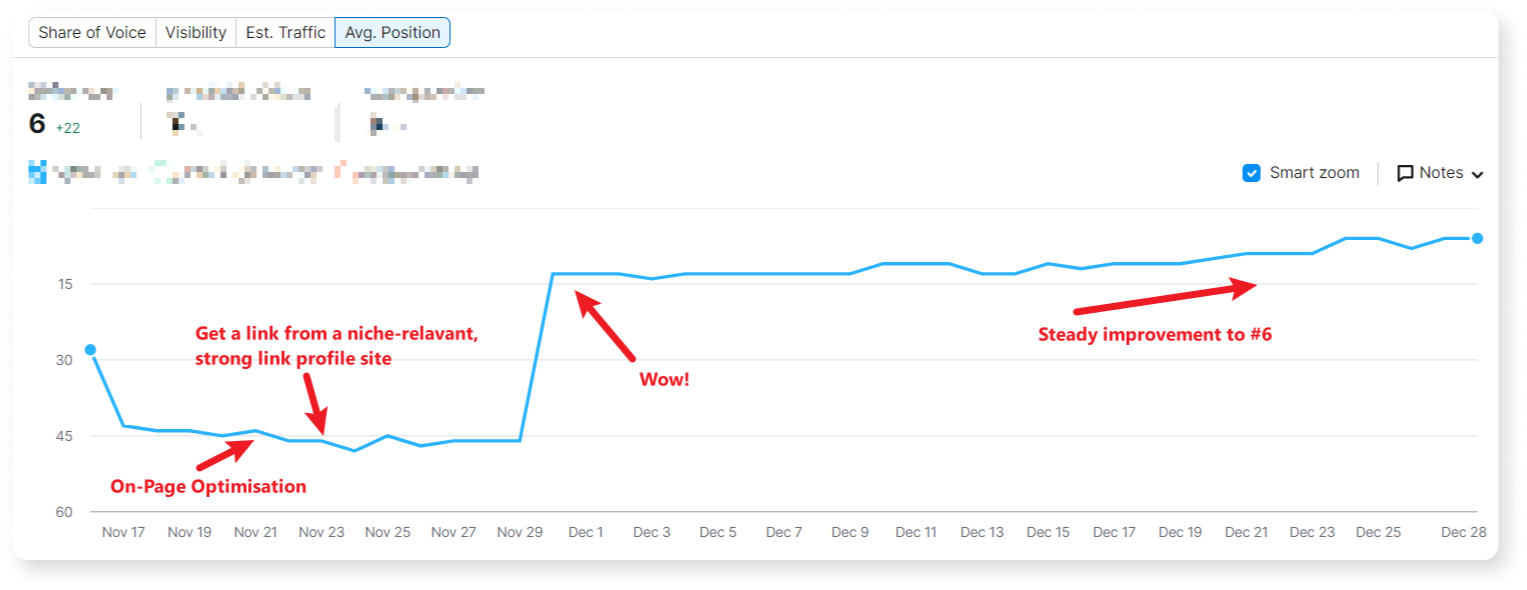
By partnering with relevant influencers in your niche, you can tap into their follower base and drive organic traffic to your website.
Decisions in Organic Marketing Strategy
Affiliate vs Organic Approaches
When considering affiliate versus organic approaches in marketing strategy decisions, it’s essential to understand their differences.
Affiliate marketing involves promoting products or services through affiliates who earn a commission for each sale they generate.
On the other hand, organic approaches focus on attracting customers naturally through content creation and engagement.
While both approaches can be effective, organic marketing offers long-term benefits. It builds stronger customer relationships based on trust and authenticity.
Paid vs Organic Decision Making
When deciding between paid and organic marketing, you should consider budget, timeline, and goals.
Paid marketing offers immediate results but requires ongoing investment to maintain visibility. On the other hand, organic marketing provides sustainable growth over time.
A well-rounded approach that combines both paid and organic strategies can maximise results.
For example, investing in paid advertising campaigns can boost visibility while simultaneously implementing organic tactics like SEO marketing and content creation for long-term growth.
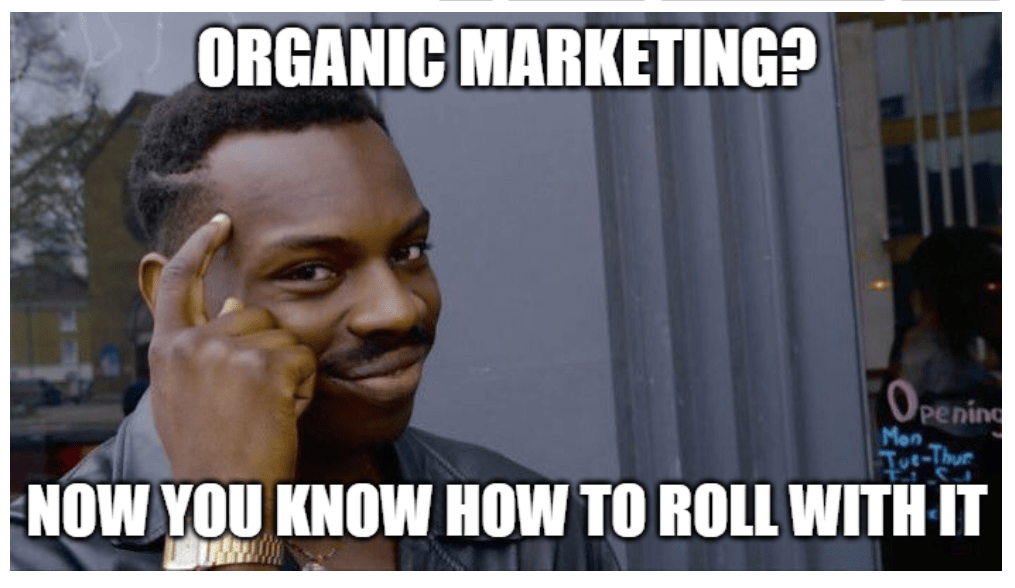
Conclusion
We’ve covered the ins and outs of organic marketing, from understanding its importance to implementing effective strategies.
Creating valuable content and leveraging email marketing can enhance your organic growth and reach your target audience more effectively.
Now, it’s time to put all this knowledge into action. Start by analysing your current organic marketing efforts and identifying areas for improvement.
Need help deciding if SEO is right for you? Contact us to schedule a consultation and see if SEO is a smart investment for your business.
Frequently Asked Questions
How can organic marketing help my business grow?
Organic marketing can significantly contribute to the growth of your business by increasing brand visibility, attracting targeted traffic, and building trust with your audience. Unlike paid advertising, organic marketing focuses on creating valuable content and optimising it for search engines, helping you establish a sustainable online presence.
What are some effective tactics for successful organic marketing?
Successful organic marketing involves a combination of strategies such as search engine optimisation (SEO), content creation, social media engagement, influencer partnerships, and email marketing.
By implementing these tactics consistently and strategically, you can enhance your online presence and drive organic growth for your business.
How does creating my own content impact organic marketing?
Creating high-quality content is essential for organic marketing success. When you produce valuable and relevant content that addresses the needs of your target audience, it not only attracts more visitors but also establishes you as an authority in your industry.
This helps improve search engine rankings and increases the likelihood of people sharing your content.
Can email marketing support organic growth?
Absolutely! Email marketing plays a crucial role in enhancing organic growth. You can nurture relationships with potential customers by building an engaged subscriber list and sending personalised emails with valuable content or promotions. This keeps them connected to your brand and encourages repeat visits to your website or blog.
Why are decisions important in an organic marketing strategy?
Decisions form the backbone of any successful organic marketing strategy. Every decision shapes how well your strategy performs, from choosing the right keywords for SEO to selecting the most effective social media platforms for engagement.
It’s crucial to analyse data, stay updated with industry trends, and make informed decisions that align with your business goals.






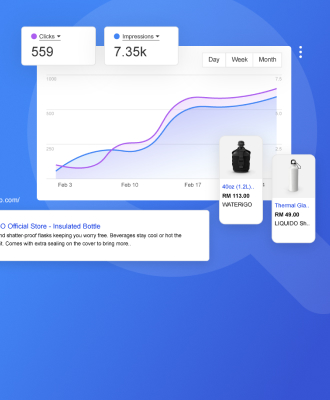
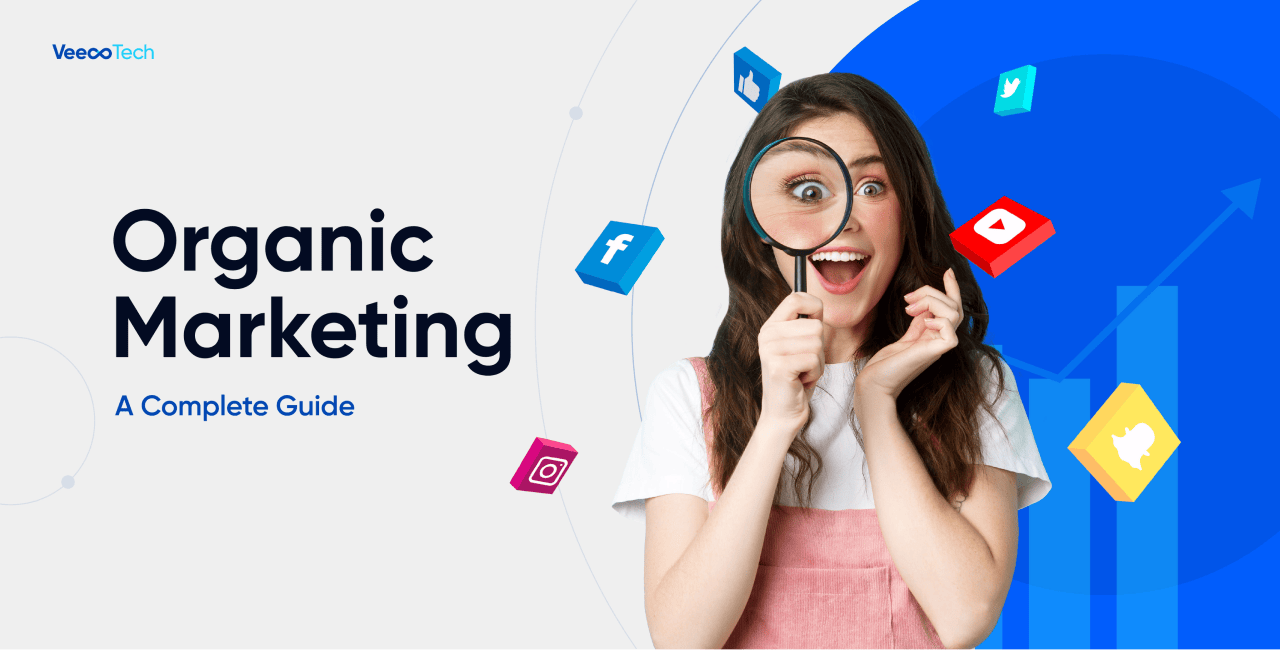

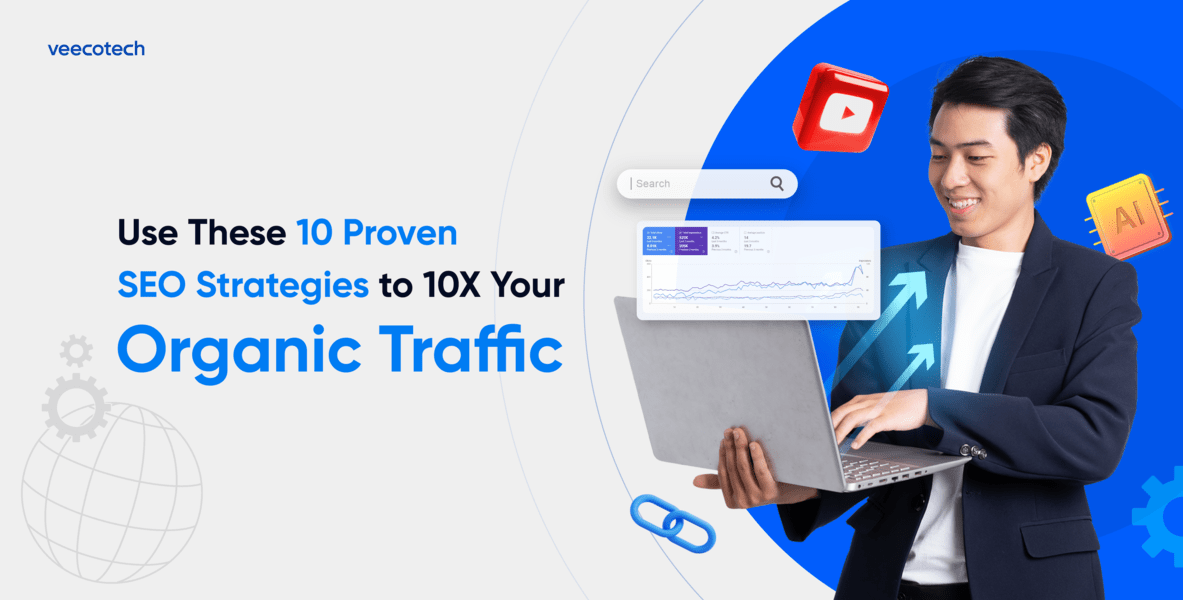



Leave A Comment